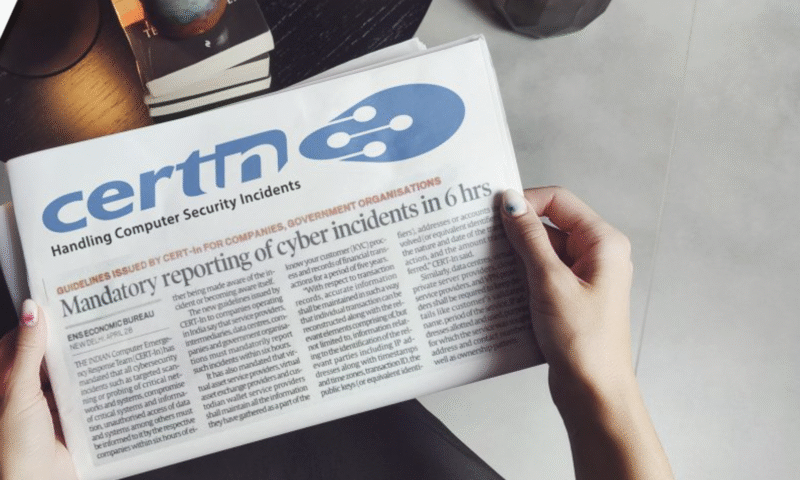
[CIVN-2025-0151] Multiple vulnerabilities in Microsoft SharePoint Server
—–BEGIN PGP SIGNED MESSAGE—–
Hash: SHA256
Multiple vulnerabilities in Microsoft SharePoint Server
Indian – Computer Emergency Response Team (https://www.cert-in.org.in)
Severity Rating: CRITICAL
Software Affected
Microsoft SharePoint Server Subscription Edition (on‑premises)
Microsoft SharePoint Server 2019
Microsoft SharePoint Enterprise Server 2016 (all versions prior to July 21, 2025)
Overview
Multiple vulnerabilities have been reported in Microsoft SharePoint Server, which could be exploited by a remote attacker to execute arbitrary code, access sensitive data, or perform spoofing attacks on the targeted system.
Target Audience:
All end-user organizations and individuals using affected Microsoft SharePoint Server installations.
Risk Assessment:
High risk of unauthorized access to sensitive data, remote code execution, and potential disruption of services.
Impact Assessment:
Potential for unauthorized access to sensitive information, execution of arbitrary code, privilege escalation, and full system compromise.
Description
Microsoft SharePoint is a web-based collaboration and document management platform developed by Microsoft. It enables organizations to create, manage, and share content, knowledge, and applications in a centralized, secure environment.
Multiple vulnerabilities exist in Microsoft SharePoint Server due to deserialization of untrusted data in on-premises versions and improper limitation of a pathname to a restricted directory (‘path traversal’).
A remote attacker could exploit these vulnerabilities by sending specially crafted requests to the targeted system. Successful exploitation of these vulnerabilities could allow an attacker to execute arbitrary code, access sensitive data, or perform spoofing attacks on the targeted system.
Note: CVE-2025-53770 is being actively exploited in the wild.
Solution
Apply the security updates released by Microsoft to address these vulnerabilities:
https://msrc.microsoft.com/update-guide/vulnerability/CVE-2025-53770
https://msrc.microsoft.com/update-guide/vulnerability/CVE-2025-53771
Mitigation Measures
Apply the latest security patches for Microsoft SharePoint Server as per the above advisories.
Rotate the ASP.NET MachineKey values (ValidationKey and DecryptionKey) after applying the updates to invalidate any compromised credentials.
Enable AMSI (Antimalware Scan Interface) integration in SharePoint to enhance detection of malicious activity.
Deploy Microsoft Defender Antivirus or a compatible endpoint protection solution with updated signatures.
Scan SharePoint directories (e.g., LAYOUTS folder) for unauthorized ASPX files such as spinstall0.aspx.
Monitor systems for suspicious process activity such as w3wp.exe spawning cmd.exe or powershell.exe.
Restrict external access to on-premises SharePoint servers where feasible until patched.
Review logs for signs of exploitation and conduct a thorough compromise assessment if any indicators are found.
Vendor Information
Microsoft
https://msrc.microsoft.com/update-guide/vulnerability/CVE-2025-53770
https://msrc.microsoft.com/update-guide/vulnerability/CVE-2025-53771
References
https://msrc.microsoft.com/update-guide/vulnerability/CVE-2025-53770
https://msrc.microsoft.com/update-guide/vulnerability/CVE-2025-53771
CVE Name
CVE-2025-53770
CVE-2025-53771
– —
Thanks and Regards,
CERT-In
Incident Response Help Desk
e-mail: incident@cert-in.org.in
Phone: +91-11-22902657
Toll Free Number: 1800-11-4949
Toll Free Fax : 1800-11-6969
Web: http://www.cert-in.org.in
PGP Fingerprint: A768 083E 4475 5725 B81A A379 2156 C0C0 B620 D0B4
PGP Key information:
https://www.cert-in.org.in/s2cMainServlet?pageid=CONTACTUS
Postal address:
Indian Computer Emergency Response Team (CERT-In)
Ministry of Electronics and Information Technology
Government of India
Electronics Niketan
6, C.G.O. Complex
New Delhi-110 003
—–BEGIN PGP SIGNATURE—–
iQIzBAEBCAAdFiEE6r4Iam/Ey0c/KakL3jCgcSdcys8FAmh/QJcACgkQ3jCgcSdc
ys8RJQ/9G3AhAAgkH0FB30nFQfbta9Dd6C0kV6ktePUGMNvtLPj/CepMMsjuPlKV
8cbXCM0KaavZLSaiS4Kq1qUfjrjyn/K0AVMHZU4celzYhBH+6IsZrHlxCJypDW+Z
DA4GEy8kOyiqP/cVR1l46sZ+MDRgU2Oqwgd1GAsrNYY5KvKS39VfECpaZkxZ9wyr
4adb1dPOQTXhluZwNYMPnylZvAV9fvwJLBVoBtYFvydYSOlDf6b+J0Pg1my4wemy
kkWO7pMZe5/5GDb8q+iCdsPmMUPuQ0HNF07DM9m7NMRYAiRW8g9/oU/AvAF7Rpv7
2/m5IwZJIbweGeHG9HwT7fbGxFI1HLdwtDgcTgNEG8x6zTGYVUw5ttZrg4DRFgk6
1I6/FtbwJHP7XKC/SZugqk0Lb4GEnvzPzJkFX4cOOqvEQdKxlPpOUOeeFVeHsHWC
Zs97cWOz8KGERtHRVadj9z/wA6jP89DN/vpMppNBc6SinOuqsoFHd5QpoFaPmq5q
1F8MwNo6Wmhv3i7ZOMpjHyow7RJovE5usXSkHPE22uQ7V57teCSdHuFBC+2leyyr
rSgrlUyRhI+Jk0IpGUgTULd8ZQ740ladGVEtdAveQNAGCXvlQvBBu8xc7x2sKcth
sAAZoI3XanTtbH0RbNCgVn5P3AhTnBp0KyeyILP6G0B1GBdrvOw=
=zy/k
—–END PGP SIGNATURE—–

![[CIAD-2026-0005] Multiple Vulnerabilities in Microsoft Products](https://teamwin.in/wp-content/uploads/2025/06/certin-new-e1751351599950-500x383.png)

